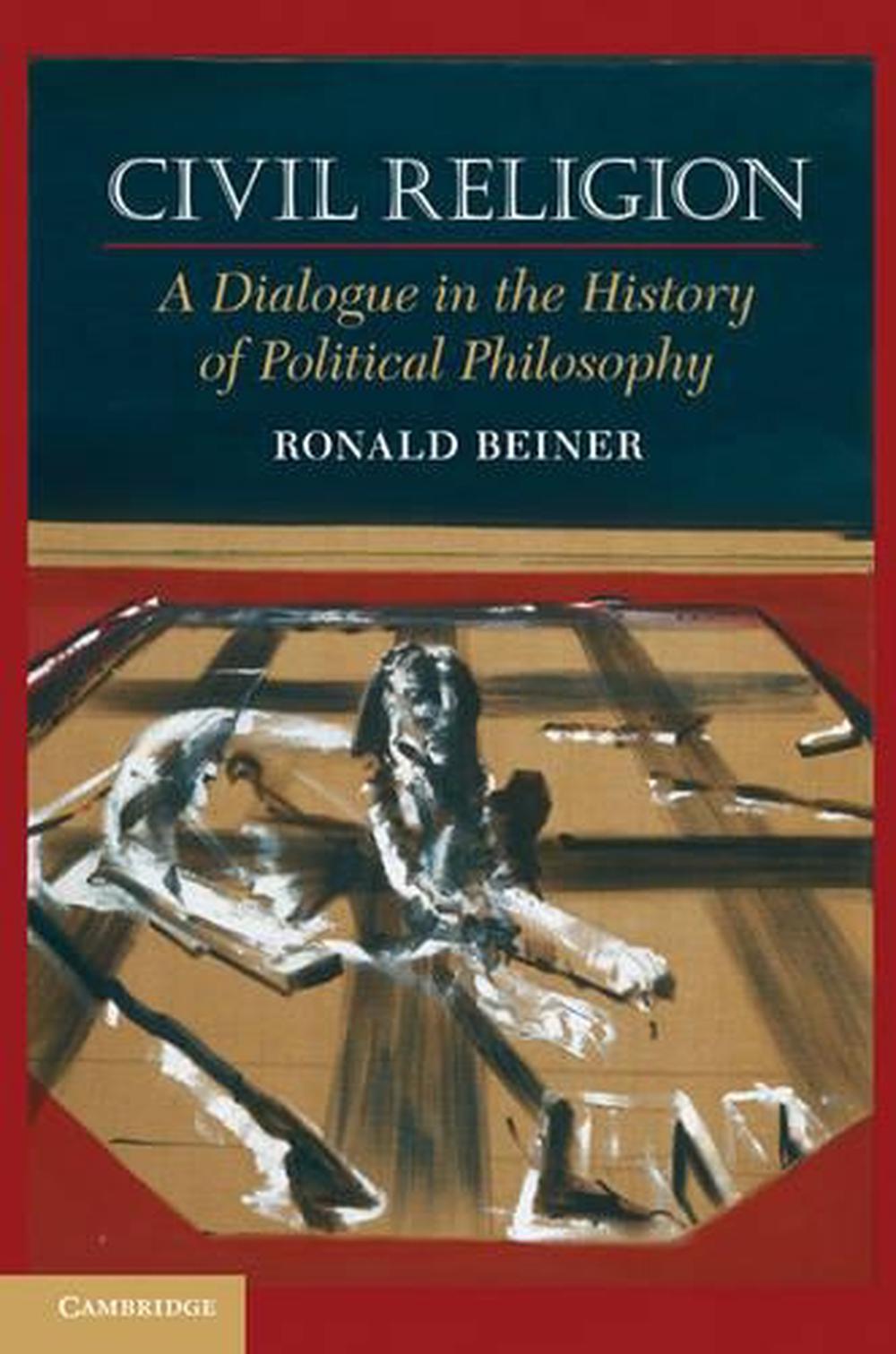
Civil Religion
by Ronald Beiner
Civil Religion traces an intellectual dialogue on the challenge posed to political and civic life by religion. This schema provides the framework for an interpretation of modern political philosophy from the sixteenth to twentieth century.
Paperback
English
Brand New
Publisher Description
Civil Religion offers philosophical commentaries on more than twenty thinkers stretching from the sixteenth to the twentieth century. It examines four important traditions within the history of modern political philosophy. The civil religion tradition, principally defined by Machiavelli, Hobbes and Rousseau, seeks to domesticate religion by putting it solidly in the service of politics. The liberal tradition pursues an alternative strategy of domestication by seeking to put as much distance as possible between religion and politics. Modern theocracy is a militant reaction against liberalism, reversing the relationship of subordination asserted by civil religion. Finally, a fourth tradition is defined by Nietzsche and Heidegger. Aspects of their thought are not just modern, but hyper-modern, yet they manifest an often-hysterical reaction against liberalism that is fundamentally shared with the theocratic tradition. Together, these four traditions compose a vital dialogue that carries us to the heart of political philosophy itself.
Author Biography
Ronald Beiner is a Professor of Political Science at the University of Toronto and a Fellow of the Royal Society of Canada. He has edited Hannah Arendt's Lectures on Kant's Political Philosophy; his other books include Political Judgment; What's the Matter with Liberalism? (winner of the Canadian Political Science Association's 1994 Macpherson Prize); Philosophy in a Time of Lost Spirit; and Liberalism, Nationalism, Citizenship.
Table of Contents
Part I. Machiavelli, Hobbes, Rousseau: Three Versions of the Civil Religion Project: 1. Rousseau's problem; 2. The Machiavellian solution: paganization of Christianity; 3. Moses and Mohammed as founder-princes or legislators; 4. Re-founding and 'filiacide': Machiavelli's debt to Christianity; 5. The Hobbesian solution: Judaicization of Christianity; 6. Behemoth: Hobbesian 'theocracy' versus the real thing; 7. Geneva Manuscript: the apparent availability of a Rousseauian solution; 8. Social Contract: the ultimate unavailability of a Rousseauian solution; Part II. Responses to (and Partial Incorporations of) Civil Religion within the Liberal Tradition: 9. Baruch Spinoza: from civil religion to liberalism; 10. Philosophy and piety: problems in Spinoza's case for liberalism (owing to a partial reversion to civil religion); 11. Spinoza's interpretation of the Commonwealth of the Hebrews, and why civil religion is a continuing presence in his version of liberalism; 12. John Locke: the liberal paradigm; 13. 'The gods of the philosophers' I: Locke and John Toland; 14. Bayle's republic of atheists; 15. Montesquieu's pluralized civil religion; 16. The Straussian rejection of the enlightenment as applied to Bayle and Montesquieu; 17. 'The gods of the philosophers' II: Rousseau and Kant; 18. Hume as a successor to Bayle; 19. Adam Smith's sequel to Hume (and Hobbes); 20. Christianity as civil religion: Tocqueville's response to Rousseau; 21. John Stuart Mill's project to turn atheism into a religion; 22. Mill's critics; 23. John Rawls's genealogy of liberalism; 24. Prosaic liberalism: Montesquieu versus Machiavelli, Rousseau, Nietzsche; Part III. Theocratic Responses to Liberalism: 25. Joseph de Maistre: the theocratic paradigm; 26. Maistrean politics; 27. Maistre and Rousseau: theocracy versus civil religion; 28. Carl Schmitt's 'theocratic' critique of Hobbes; Part IV. Post-Modern 'Theism': Nietzsche and Heidegger's Continuing Revolt Against Liberalism: 29. Nietzsche, Weber, Freud: the twentieth century confronts the death of God; 30. Nietzsche's civil religion; 31. Heidegger's sequel to Nietzsche: the longing for new gods; 32. Conclusion.
Review
'Ronald Beiner does an excellent job of interpreting a dizzying number of works in the tradition, and everyone from undergraduates to seasonal readers of these texts will benefit from his readings … As the scope suggests, this book is an ambitious and ultimately impressive contribution to the history of political thought … Beiner is fully aware of the methodoligical assumptions inherent in his project, but a very helpful introduction and conclusion position him as a moderate and thoughtful presence between contextualism and Staussianism (each of which is given a fair hearing and indeed put to use when necessary). Jacob Abolafia, Political Studies Review
Promotional
Civil Religion traces a continuing intellectual dialogue on the challenge posed to political and civic life by religion.
Prizes
Winner of A Choice Outstanding Academic Title 2011
Review Quote
"...those of us who have been in debt to Ronald Beiner for previous works that have enriched our understanding of those men he calls the 'master thinkers' of political theory find our debt to him deepened by Civil Religion. -Robert P. George, Princeton University, Political Theory
Promotional "Headline"
Civil Religion traces a continuing intellectual dialogue on the challenge posed to political and civic life by religion.
Description for Bookstore
Civil Religion traces an intellectual dialogue on the challenge posed to political and civic life by religion. This schema provides the framework for an interpretation of modern political philosophy from the sixteenth to twentieth century.
Description for Library
Civil Religion traces an intellectual dialogue on the challenge posed to political and civic life by religion. This schema provides the framework for an interpretation of modern political philosophy from the sixteenth to twentieth century.
Details

